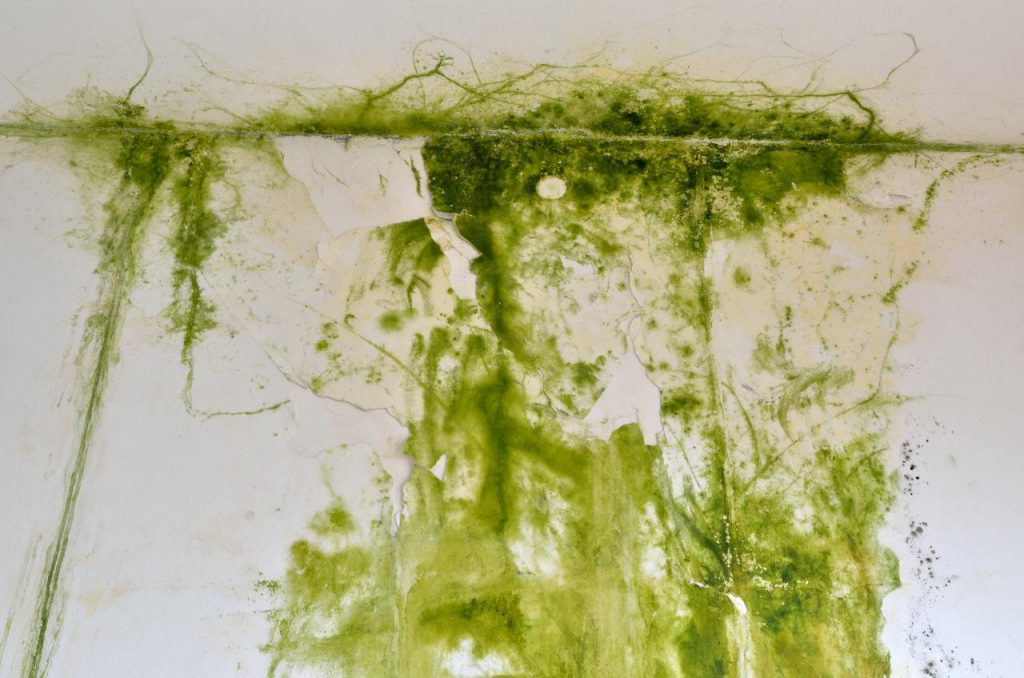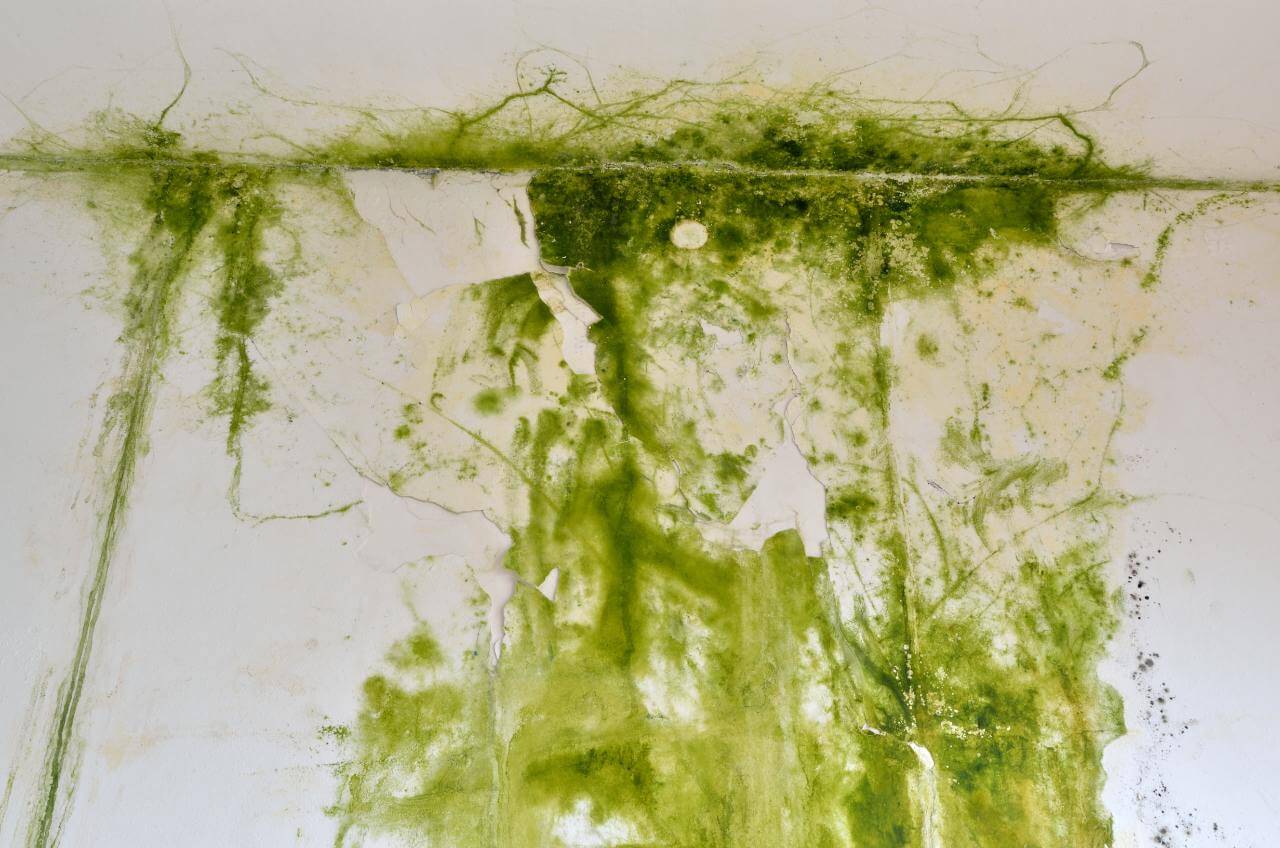Mold is the enemy of every homeowner. Imagine for a moment that you had just paid off your mortgage and you can finally breathe a sigh of relief that your home is totally yours now. Isn’t it nice? but dealing with mold in the house is very hard for the owner.
That is until one day as you are doing a home improvement project you suddenly discover brown and black mildew spreading across panel boards or even on cement blocks. At this point, most homeowners would panic.
Not only is it a health issue, but mold also affects structural safety and has a negative impact on property value. What can you do about it? How do you know if I even have mold?
This guide will answer those questions and more to ensure you are well prepared to protect your family and your investment.

What Are The Causes Of Mold?
Not all mold is bad, in fact, it’s a very important part of our world. It breaks down and helps recycle organic materials like plants, wood products, and even animal carcasses.
It means that mold is a natural occurrence and can be found just about anywhere. The problem starts when mold populates structures like our homes and feeds off building materials.
However, it then releases spores into our indoor air which could lead to serious health problems for those with asthma and allergies. High levels of moisture lead to an increase of mold colonies which in-turn creates more problems for home-owners.
Why Should I Have Mold Removed?
Is it really such a problem? Why not just clean it off and forget about it? You could but that would lead to an expensive problem down the road.
Remember that mold and moisture cause materials to rot especially those made of wood such as vents, roof flashing, decks, and window wells. It is obvious that detecting and removing mold early is important for preserving the value of your home.
What Are The Signs Of Mold Colonization?
Now that you know mold is a serious problem, how can you detect it? What are the signs that mold has already started growing?
Some of the most obvious places to spot mold are under sinks, bathtubs, and around water heaters. You should check all of the plumbing in your home for leaks. It’s a good idea to turn on the water and let it run so you can inspect the pipes and the area around them closely for wet spots to know whether or not they are the source of your problem.
If you find water stains or discoloration then you more than likely have mold. Areas with mold will give off a musty scent, especially near sources of water that are leaking but it can come and go.
If the affected area already has mold spores then 48 hours after a water event mold will begin to grow and colonize. You may also want to check the exterior of the home as leaks in the roof or walls may point to an outside source of moisture.
Have a close inspection of vents, roof flashing, and window wells on the house. Sometimes the source may be the ground sloping towards the building creating downspouts that make walls wet and erode the foundation. Once you have identified the source of your mold problem it is imperative to start the removal process so as to safeguard your property value and your family.
Why Should I Hire A Professional Mold Remover?
Is it really worth calling in a mold removal specialist? For a little mildew in your bathroom, it wouldn’t be necessary but if you cannot find the source of the mold and it continues to colonize and spread then the cost of a professional mold remover would be nothing compared to loss in property value and health care expenses down the road.
It is extremely important to get the mold out of your home as quickly as possible if there are individuals with compromised immune systems in the residence. Moreover, young children and the elderly are at high risk of contracting mold-related illnesses.
Besides, if you can detect the musty smell of mold, but cannot locate the source of moisture then you absolutely need a professional to do a safe and thorough removal of the colony to prevent any further damage. If you do decide to call in a pro, then prepare a bit beforehand.
Do your homework by getting several quotes and asking for references from satisfied customers. It is also a good idea to do a bit of research on the prospective company to learn more about their certificates and licenses.
Certifications are a good indication that the contractor has basic knowledge and participates in training programs. You may also inquire whether or not they use accredited labs and testing equipment.
What Does The Removal Process Consist Of?
What does a professional mold remover actually do? Well, there are several methods to approach mold removal and the best mold removal service will have access to modern tools and advanced techniques.
The process known as remediation involves three steps. Before the work begins, the affected area is contained and negative air pressure HEPA air purifiers are used to prevent cross-contaminating the site.
First, the fungi are killed with EPA registered anti-microbial mist to suspend and destroy mold spores. Then the dead mold is abrasively removed. The affected surfaces of the building must be completely removed, put in bags, and disposed of properly.
Finally, the rooms, spaces, and surfaces must be dehumidified and all cavities/underlayment are treated. Once all this has been done successfully then the sealing and clean-up work begins. The contractor will apply EPA registered protective sealer to prevent future mold colonization in the affected area. A clearance test will be performed to ensure all mold and spores have been removed successfully.
What Are The Costs Of Hiring A Pro?
Let’s be honest, it is going to cost you a bit of money to get quality work done. Wouldn’t you rather invest in safeguarding your home from mold now? What is the peace of mind worth to you?
You can always get free estimates from mold removal services near you and compare fees, but you should get quotes from reliable mold removal professionals like us.
Final Thoughts
Although many homeowners may choose to remove mold themselves or worse simply ignore the problem, there is still hope that a pro can solve the issue for you.
We cannot stress enough the importance of early detection and removal. If left untreated mold colonies will rot the wood in structures and even weaken the foundation of homes, which will decrease your property value, not to mention the adverse effects of mold spores contaminating indoor air.
Mold is an absolute nightmare for any homeowner and must be dealt with accordingly. Remember that you must locate the source of moisture to prevent further growth of the mold colony, and if you cannot find the source yourself then you may seriously consider calling in a decontamination expert like Lumiair.





[…] Dealing With Mold In The Home […]